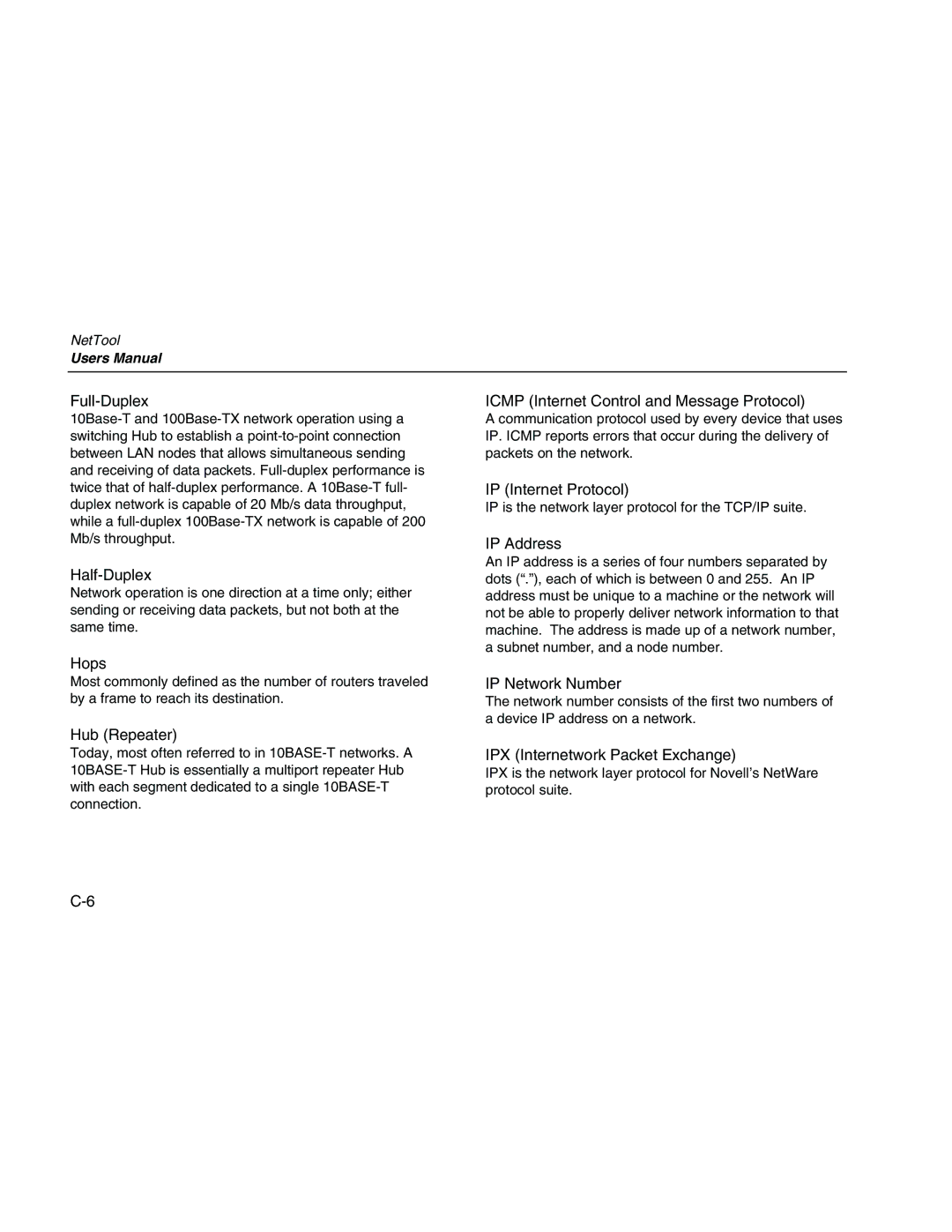NetTool
Users Manual
Full-Duplex
Half-Duplex
Network operation is one direction at a time only; either sending or receiving data packets, but not both at the same time.
ICMP (Internet Control and Message Protocol)
A communication protocol used by every device that uses IP. ICMP reports errors that occur during the delivery of packets on the network.
IP (Internet Protocol)
IP is the network layer protocol for the TCP/IP suite.
IP Address
An IP address is a series of four numbers separated by dots (“.”), each of which is between 0 and 255. An IP address must be unique to a machine or the network will not be able to properly deliver network information to that machine. The address is made up of a network number, a subnet number, and a node number.
Hops
Most commonly defined as the number of routers traveled by a frame to reach its destination.
IP Network Number
The network number consists of the first two numbers of a device IP address on a network.
Hub (Repeater)
Today, most often referred to in
IPX (Internetwork Packet Exchange)
IPX is the network layer protocol for Novell’s NetWare protocol suite.
